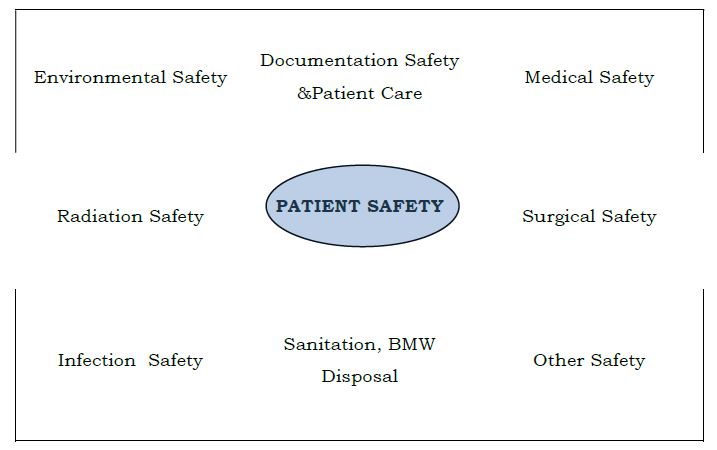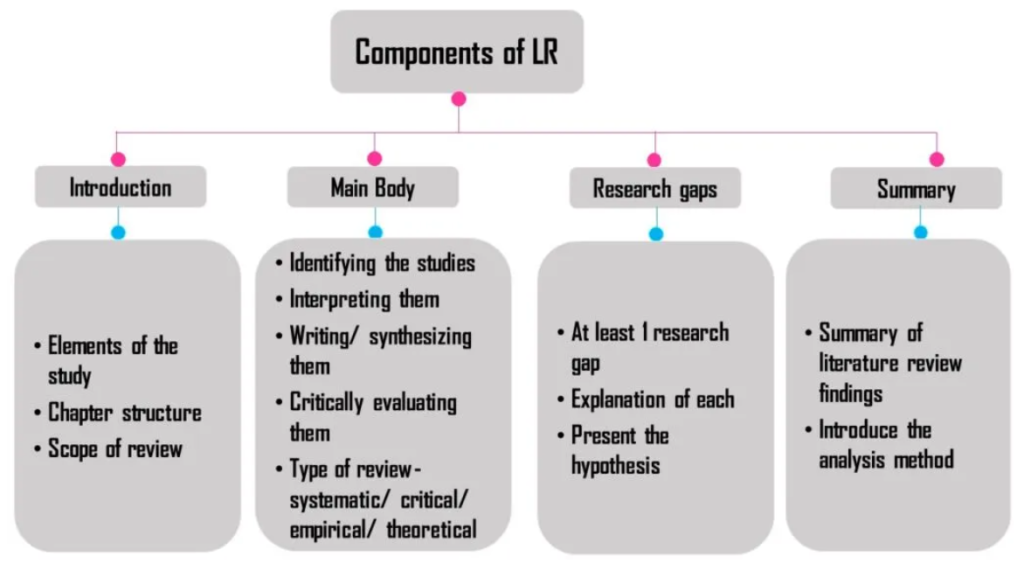
Table of Contents
Embarking on a thesis for nursing can feel like climbing a mountain. It’s a significant undertaking that demands meticulous research, critical thinking, and the ability to synthesize complex information into a cohesive and original argument. This comprehensive guide will provide you with the essential steps and insights needed to successfully navigate the process of writing a compelling and impactful thesis for nursing.
Understanding the Landscape: What is a Nursing Thesis?
Before diving into the practicalities, it’s crucial to understand what a thesis for nursing entails. Unlike a simple research paper, a thesis represents a substantial piece of scholarly work that contributes new knowledge or provides a fresh perspective within the field of nursing. It demonstrates your ability to critically analyze existing literature, conduct original research (if applicable), and draw meaningful conclusions that can potentially influence nursing practice, education, or policy.

A successful thesis for nursing showcases your mastery of the subject matter, your ability to conduct independent research, and your potential to contribute meaningfully to the nursing profession.
Step 1: Laying the Foundation – Choosing Your Topic
The cornerstone of a successful thesis for nursing is a well-defined and focused topic. Choosing the right topic is arguably the most critical step. Here’s how to approach it:
- Identify Your Passion: What areas of nursing genuinely interest you? Think about clinical experiences, specific patient populations, or challenges within the healthcare system that resonate with you. A genuine interest will fuel your motivation throughout the demanding thesis writing process.
- Explore the Literature: Conduct a preliminary literature review to identify gaps in existing research, emerging trends, and areas where further investigation is needed. This helps you pinpoint a topic that is both relevant and researchable.
- Consider Feasibility: Ensure that your chosen topic is manageable within the given timeframe and resources. Consider factors such as data availability, accessibility to participants (if required), and the scope of the research question.
- Refine and Narrow: Once you have a general area of interest, refine it into a specific and focused research question. A broad topic like “Pain Management in Nursing” can be narrowed down to “The Impact of Music Therapy on Pain Reduction in Post-Operative Pediatric Patients.”
Powerful Topic Ideas for Your Nursing Thesis
Choosing the right topic is the cornerstone of a successful nursing thesis. It’s the foundation upon which you’ll build your research, analysis, and ultimately, your contribution to the nursing profession. A powerful topic is one that is both personally engaging and clinically relevant, allowing you to delve deep into an area you care about while addressing a pressing need in healthcare. Here are some compelling nursing thesis topic ideas to spark your creativity and guide you in selecting a thesis for nursing that will resonate with you and make a meaningful impact.
Prioritize Patient Safety and Quality of Care
Patient safety and quality of care are perennial concerns within nursing. Exploring these areas can yield impactful research and offer practical solutions to improve patient outcomes.
- Reducing Medication Errors in Specific Populations: Focus on a specific patient population (e.g., elderly patients, pediatric patients, individuals with cognitive impairments) and investigate strategies to minimize medication errors. Your thesis for nursing could analyze the effectiveness of various interventions like bedside medication verification, medication reconciliation programs, or targeted staff training.
- Improving Communication During Patient Handover: Analyze the impact of standardized communication protocols (e.g., SBAR) on patient safety during shift changes or transfers between departments. This could involve evaluating existing protocols, identifying gaps, and proposing improvements to ensure continuity of care.
- Evaluating the Effectiveness of Telehealth in Chronic Disease Management: Assess the impact of telehealth interventions on patient adherence, self-management skills, and overall health outcomes for patients with chronic conditions like diabetes, heart failure, or COPD. This thesis for nursing could compare telehealth approaches with traditional face-to-face care.

Address Emerging Trends in Healthcare
The healthcare landscape is constantly evolving. Exploring emerging trends allows you to contribute to the future of nursing practice.
- The Role of Artificial Intelligence (AI) in Nursing: Investigate the potential applications of AI in nursing, such as AI-powered diagnostic tools, robotic assistance, or predictive analytics for patient risk assessment. Ethical considerations surrounding AI implementation in nursing can also be explored.
- Impact of Climate Change on Public Health and Nursing Response: Examine the direct and indirect impacts of climate change on public health, and how nurses can prepare for and respond to climate-related health emergencies (e.g., heatwaves, floods, vector-borne diseases). This thesis for nursing could explore strategies for building community resilience and promoting environmental sustainability within healthcare settings.
- The Impact of Social Determinants of Health on Patient Outcomes: Explore the relationship between social determinants of health (e.g., socioeconomic status, access to education, food insecurity) and health outcomes in a specific population. Your thesis for nursing could investigate strategies for addressing these social determinants within the nursing context.
Focus on Nurse Well-being and Workforce Issues
The well-being of nurses is crucial for providing quality patient care. Addressing issues related to nurse burnout, retention, and professional development is vital.
- Investigating Strategies to Reduce Nurse Burnout: Analyze the factors contributing to nurse burnout in a specific setting and evaluate the effectiveness of interventions like mindfulness training, stress management programs, or workload optimization strategies.
- Exploring the Impact of Mentorship Programs on Nurse Retention: Assess the impact of mentorship programs on nurse satisfaction, retention rates, and professional development, particularly for newly graduated nurses. This thesis for nursing could compare different mentorship models and identify best practices.
- Evaluating the Effectiveness of Simulation-Based Training in Nursing Education: Examine the impact of simulation-based training on nursing students’ clinical skills, confidence, and critical thinking abilities. Your research could compare simulation-based learning with traditional teaching methods.
Ultimately, choosing the right thesis for nursing requires careful consideration of your interests, skills, and the relevance of the topic to the nursing profession. By exploring these powerful topic ideas, you can embark on a research journey that is both intellectually stimulating and contributes to the advancement of nursing practice.
Step 2: The Power of Literature Review
The literature review is the backbone of your thesis for nursing. It demonstrates your understanding of the existing knowledge base and provides the context for your research question.
- Comprehensive Search: Utilize databases such as PubMed, CINAHL, Cochrane Library, and Google Scholar to conduct a thorough search for relevant articles, books, and other scholarly sources.
- Critical Evaluation: Don’t just summarize the literature; critically evaluate the methodologies, findings, and limitations of each study. Identify any gaps or inconsistencies that your thesis will address.
- Synthesize Information: Group and synthesize the literature into thematic categories to demonstrate how different studies relate to your research question.
- Identify Theoretical Frameworks: Explore existing theories and models that are relevant to your topic. These frameworks can provide a lens through which to analyze your findings and draw meaningful conclusions.
- Maintain Accurate Records: Keep meticulous records of all sources you consult, including full citations, key findings, and your own notes. This will save you time and prevent plagiarism.

Step 3: Crafting a Compelling Research Question and Hypothesis
Your research question is the guiding light of your thesis for nursing. It should be clear, concise, and focused on a specific aspect of your chosen topic.
- Develop a Clear Question: Your research question should clearly articulate what you want to investigate. Avoid vague or ambiguous language.
- Ensure Measurability: If applicable, ensure that your research question can be answered through empirical data.
- Formulate a Hypothesis: Based on your literature review, formulate a testable hypothesis – a prediction about the relationship between variables. The hypothesis will guide your data collection and analysis.
- Align with Your Topic: Make sure your research question and hypothesis are directly related to your chosen topic and contribute to the existing body of knowledge in nursing.
Step 4: Designing Your Research Methodology
The research methodology outlines how you will conduct your study to answer your research question. Choose a methodology that is appropriate for your research question and the type of data you want to collect.
- Quantitative vs. Qualitative: Determine whether a quantitative (numerical data) or qualitative (descriptive data) approach is more suitable for your research question. You can also consider a mixed-methods approach, combining both quantitative and qualitative methods.
- Study Design: Select an appropriate study design, such as a randomized controlled trial, a cohort study, a case-control study, a cross-sectional survey, or a qualitative interview study.
- Data Collection Methods: Choose appropriate data collection methods, such as surveys, interviews, focus groups, observations, or analysis of existing data.
- Sampling Strategy: Define your target population and select a sampling strategy that ensures your sample is representative of the population.
- Ethical Considerations: Address all ethical considerations related to your research, including obtaining informed consent from participants, ensuring confidentiality, and protecting vulnerable populations. Obtain ethical approval from your institution’s Institutional Review Board (IRB) before commencing your research.
Step 5: Data Collection and Analysis
Once your methodology is in place, you can begin collecting data. Ensure that you follow your research protocol meticulously and maintain accurate records of all data collected.
- Data Entry and Cleaning: Enter your data into a spreadsheet or statistical software package. Clean the data to remove any errors or inconsistencies.
- Statistical Analysis: If you are using a quantitative approach, use appropriate statistical techniques to analyze your data and test your hypothesis.
- Qualitative Analysis: If you are using a qualitative approach, use techniques such as thematic analysis, content analysis, or grounded theory to analyze your data and identify key themes and patterns.
- Ensure Validity and Reliability: Implement measures to ensure the validity and reliability of your data and findings.
Step 6: Writing Your Thesis for Nursing
This is where all your hard work culminates in a written document that presents your research findings and their implications.
The Structure of a Typical Nursing Thesis:
- Abstract: A brief summary of your thesis, including the research question, methodology, key findings, and conclusions.
- Introduction: Introduce your topic, provide background information, and state your research question and hypothesis.
- Literature Review: Present a comprehensive and critical review of the existing literature related to your topic.
- Methodology: Describe your research design, data collection methods, sampling strategy, and ethical considerations.
- Results: Present your findings in a clear and concise manner, using tables, figures, and graphs as appropriate.
- Discussion: Interpret your findings in light of the existing literature, discuss the limitations of your study, and suggest areas for future research.
- Conclusion: Summarize your key findings and their implications for nursing practice, education, or policy.
- References: List all sources you cited in your thesis.
- Appendices: Include any supplementary materials, such as questionnaires, interview guides, or informed consent forms.

Tips for Writing a Thesis for Nursing
Embarking on a thesis for nursing is a significant undertaking, but with the right approach, it can be a rewarding experience. A strong thesis contributes to the nursing field and demonstrates your research skills. Here are some tips to help you navigate the process:
1. Choosing the Right Topic:
This is arguably the most crucial step. A well-chosen topic will sustain your interest and fuel your research.
- Passion is Key: Select an area within nursing that genuinely interests you.
- Feasibility Check: Ensure sufficient literature and resources exist to support your research.
- Specific Focus: Narrow your scope to a manageable and researchable question. For instance, instead of “Patient Satisfaction,” try “The Impact of Nurse Communication on Post-Operative Pain Management Satisfaction.”
2. Planning and Structure:
A well-structured thesis provides a clear roadmap for your readers and ensures a logical flow of ideas.
- Detailed Outline: Create a comprehensive outline before you begin writing.
- Chapter Breakdown: Typically, a thesis for nursing includes: Introduction, Literature Review, Methodology, Results, Discussion, and Conclusion.
- Timetable Adherence: Develop a realistic timeline with milestones and stick to it.
3. Research and Writing:
Thorough research and clear, concise writing are essential for a compelling thesis.
- Critical Literature Review: Analyze existing research to identify gaps and inform your own study.
- Evidence-Based Arguments: Support all claims with credible evidence and proper citations.
- Clarity and Conciseness: Use clear, professional language and avoid jargon. Remember, a thesis for nursing should be accessible to a wide audience within the healthcare field.
4. Seek Guidance and Feedback:
Don’t hesitate to seek support throughout the process.
- Advisor Consultation: Regularly meet with your advisor to discuss your progress and receive feedback.
- Peer Review: Ask colleagues or classmates to read your drafts and provide constructive criticism.
Writing a thesis for nursing requires dedication and meticulous planning. By following these tips, you can effectively navigate the challenges and produce a valuable contribution to the field.
Step 7: Defending Your Thesis
The final step in the process is defending your thesis before a committee of faculty members. This is an opportunity to present your research findings, answer questions from the committee, and demonstrate your understanding of the topic.
- Prepare a Presentation: Prepare a clear and concise presentation that summarizes your research.
- Anticipate Questions: Anticipate the questions that the committee may ask and prepare your answers in advance.
- Practice Your Presentation: Practice your presentation multiple times to ensure that you are comfortable with the material and can deliver it confidently.
- Be Prepared to Defend Your Research: Be prepared to defend your research methodology, findings, and conclusions.
- Be Respectful and Professional: Maintain a respectful and professional demeanor throughout the defense.
Overcoming Challenges in Nursing Thesis Writing
Writing a thesis for nursing is a challenging but rewarding experience. Here are some common challenges and how to overcome them:
- Time Management: Develop a realistic timeline and stick to it. Break down the thesis into smaller, more manageable tasks.
- Writer’s Block: Take breaks, change your environment, or talk to someone about your research.
- Data Analysis: Seek help from a statistician or qualitative research expert if you are struggling with data analysis.
- Stress and Anxiety: Take care of your physical and mental health. Get enough sleep, exercise, and eat a healthy diet.
When to Seek Assistance
Writing a thesis for nursing is a demanding process, and it’s perfectly acceptable to seek assistance when needed. There are various resources available to support you along the way. Consider these options:
- Your Thesis Advisor: Your advisor is your primary resource for guidance and support. Schedule regular meetings to discuss your progress, ask questions, and get feedback.
- Your Thesis Committee: Your committee members can provide valuable feedback on your research and writing.
- The University Writing Center: The writing center can provide assistance with all aspects of the writing process, from brainstorming to editing.
- Library Resources: The library offers a wealth of resources, including databases, journals, and books. Librarians can also help you with your literature search.
- Online Resources: There are many online resources available to help you with your thesis, including websites, blogs, and forums.
Note of Caution: While resources like help with thesis for nursing, nursing thesis help, and nursing thesis writing services exist, it’s crucial to ensure that any assistance you receive is ethical and does not compromise the originality of your work.
Seeking Professional Nursing Thesis Writing Help
At PhD Nurse Writer, we are the experts that you should engage for help with writing a top notch thesis for nursing. We can assist you with choosing a thesis topic, thesis writing, proofreading, editing, formatting and plagiarism removal. Besides nursing thesis, we also write authentic research papers, essays, term papers, case studies and dissertations. We guarantee authentic and high quality papers that will set you up for excellence.
The Bottom Line
Writing a thesis for nursing is a significant achievement that demonstrates your knowledge, skills, and commitment to the nursing profession. By following the steps outlined in this guide, you can increase your chances of success and produce a thesis that makes a meaningful contribution to the field. Choose a topic that interests you, conduct a thorough literature review, design a rigorous methodology, analyze your data carefully, and write clearly and concisely.
With hard work, dedication, and the right support, you can write a thesis for nursing that you are proud of. The ultimate goal is to make a valuable contribution to the advancement of knowledge within the field of nursing and ultimately improve patient care. Your thesis for nursing can be a stepping stone to a fulfilling and impactful career. The skills acquired during the thesis for nursing process will serve you well throughout your professional journey.





